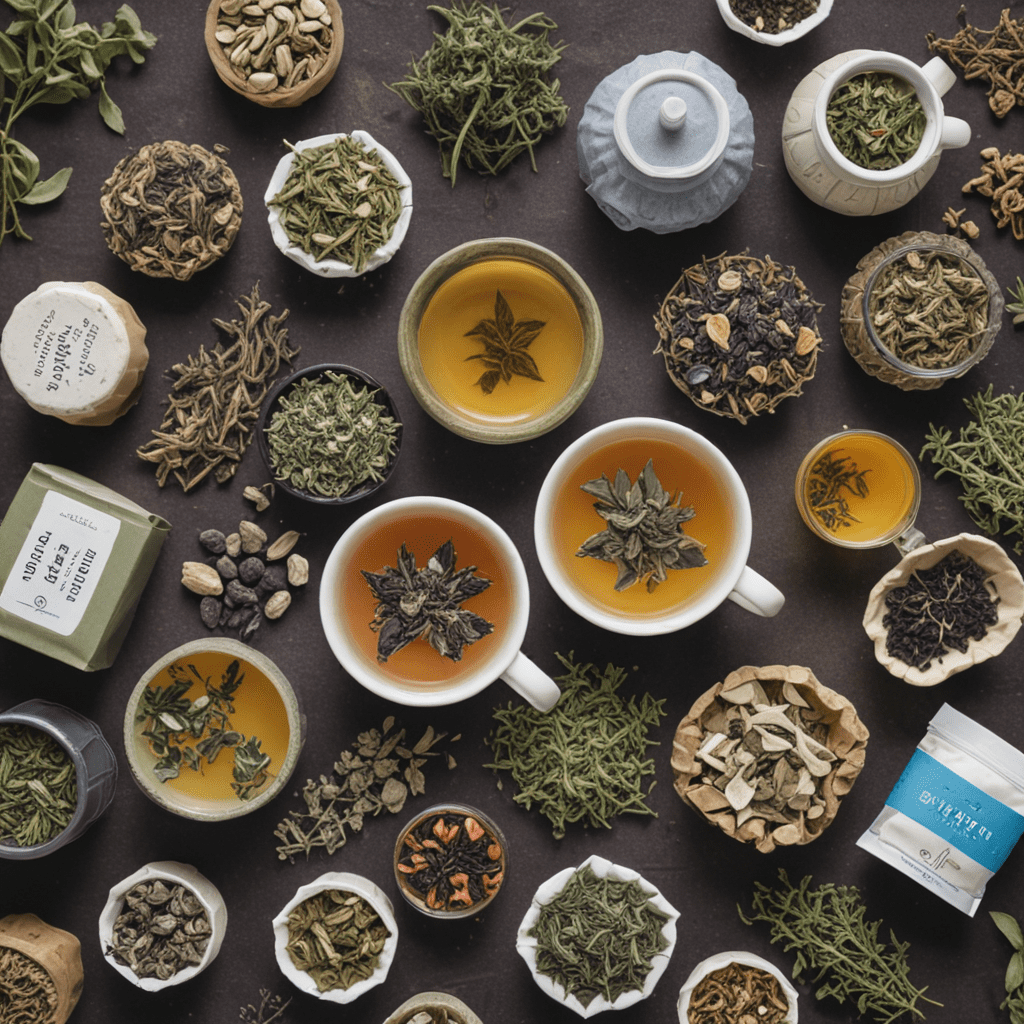
1. Introduction: The Mind-Body Connection and Herbal Teas
Stress management has become increasingly critical in today's fast-paced world. Herbal teas have been used for centuries to promote relaxation, reduce anxiety, elevate mood, and balance emotions. Understanding the mind-body connection helps us appreciate how herbal teas can provide natural remedies for stress management and emotional well-being.
2. Herbal Teas for Calming and Relaxation
Calming and relaxing herbal teas offer solace and tranquility, easing away stress and promoting a sense of calmness.
2.1 Chamomile
Chamomile is renowned for its calming effects, soothing frayed nerves and promoting relaxation. Its gentle aroma and delicate taste create a sense of tranquility, making it an ideal bedtime tea.
2.2 Lavender
Lavender, known for its calming and relaxing properties, induces tranquility and promotes restful sleep. Its floral aroma and delicate flavor provide a soothing experience, aiding in stress reduction and relaxation.
2.3 Valerian Root
Valerian root is a powerful herb that promotes relaxation and sleep. It has been used for centuries to reduce anxiety and restlessness, making it an effective natural remedy for stress management and emotional balance.
6. How to Choose Herbal Teas for Stress Management
Selecting herbal teas for stress management requires careful consideration. Choose teas that align with your individual needs and preferences. Consider the following factors:
Desired effects: Determine whether you seek calming, relaxation, anxiety reduction, mood enhancement, or emotional balancing.
Flavor profile: Choose teas with flavors you enjoy. This enhances the relaxation experience and promotes regular consumption.
Quality: Opt for high-quality herbal teas from reputable sources. Look for organic, ethically sourced, and sustainably grown options.
- Contraindications: Be aware of any potential contraindications or interactions with medications or health conditions. Consult a healthcare professional if necessary.
7. Dosage and Preparation of Herbal Teas
The dosage and preparation of herbal teas vary depending on the specific herb and desired effects. Generally:
Dosage: Start with a moderate dose and gradually adjust based on individual response. Follow the instructions provided on the tea packaging or consult a herbalist.
Steeping time: Allow the tea to steep for 5-10 minutes, or as directed. Longer steeping times may result in a stronger brew.
Water temperature: Use hot water around 195-205°F (90-96°C) for optimal extraction of beneficial compounds.
- Frequency: Consume herbal teas as per recommended dosage and frequency. Regular consumption can provide consistent stress-reducing benefits over time.
8. Safety Considerations and Interactions
While herbal teas are generally safe for most individuals, certain precautions should be taken:
Pregnancy and breastfeeding: Consult a healthcare professional before consuming herbal teas during pregnancy or while breastfeeding.
Medications: Be aware of potential interactions with medications. Inform your healthcare provider about herbal tea consumption to avoid any adverse effects.
Underlying health conditions: Individuals with pre-existing health conditions should consult a healthcare professional before incorporating herbal teas into their regimen.
- Allergic reactions: Rare allergic reactions to herbal teas are possible. Discontinue use and seek medical attention if any adverse reactions occur.
9. Long-Term Benefits and Sustainability
Regular consumption of herbal teas for stress management can provide several long-term benefits:
Reduced stress and anxiety levels: Herbal teas can help manage chronic stress and reduce anxiety over time.
Improved sleep quality: Calming herbal teas promote relaxation and aid in sleep, improving overall well-being.
Mood enhancement: Teas containing mood-boosting herbs can help elevate mood and combat feelings of sadness or irritability.
Emotional balance: Herbal teas can help regulate emotions and support mental equilibrium.
Sustainability: Choose organic, ethically sourced, and sustainably grown herbal teas to support environmental protection.
10. Conclusion: The Power of Nature's Remedies for Emotional Well-being
Herbal teas offer a gentle and natural approach to stress management and emotional balance. By understanding the mind-body connection and choosing herbal teas that align with individual needs, individuals can harness the power of nature's remedies to promote relaxation, reduce anxiety, elevate mood, and maintain emotional well-being.
FAQ
Q: How often can I drink herbal teas for stress management?
A: Regular consumption, as per the recommended dosage, is beneficial.
Q: Can I mix different herbal teas for added benefits?
A: Blending complementary herbs can enhance the desired effects. Consult a herbalist for guidance.
Q: Is it safe to consume herbal teas daily?
A: Generally yes, but consult a healthcare professional if you have underlying health conditions or are taking medications.


